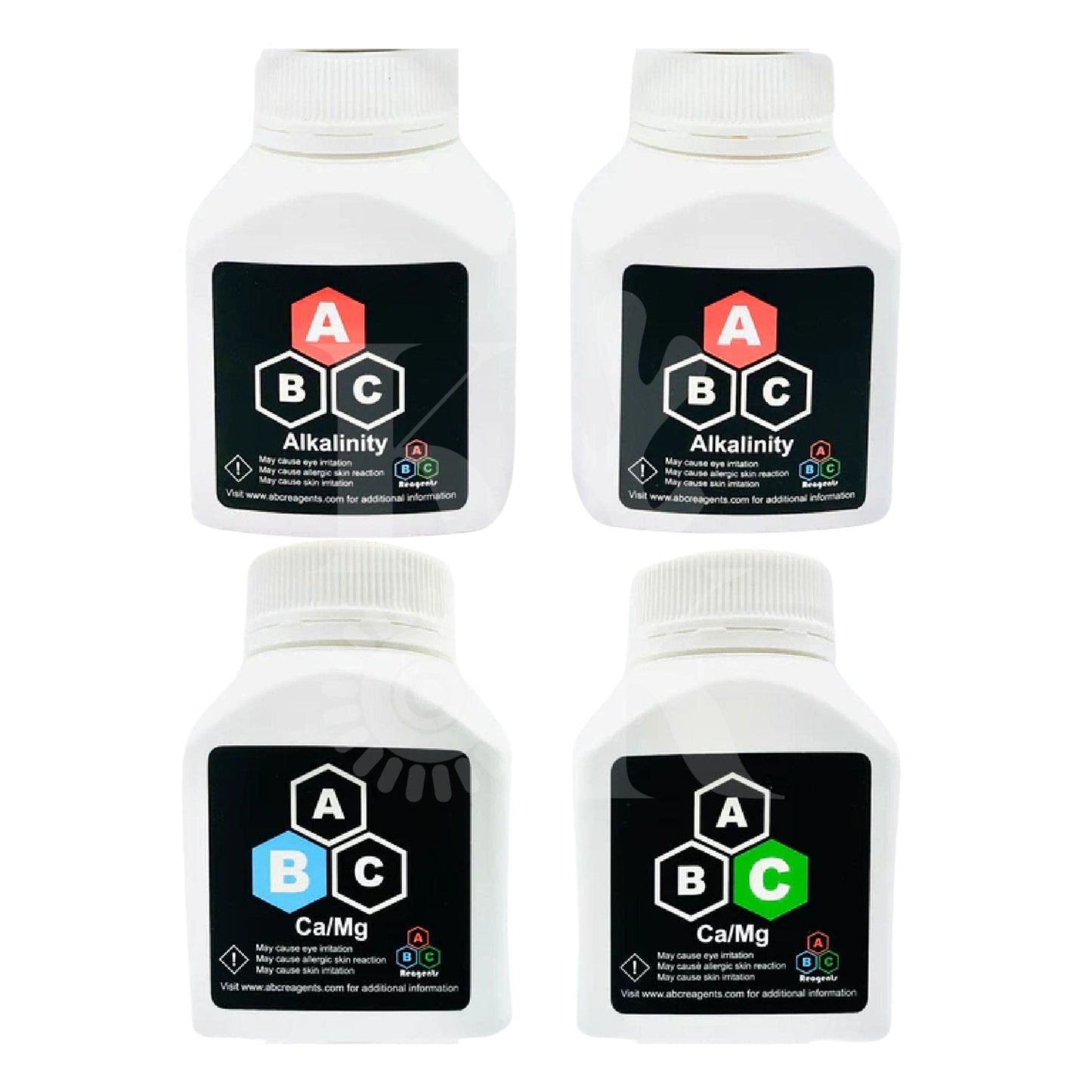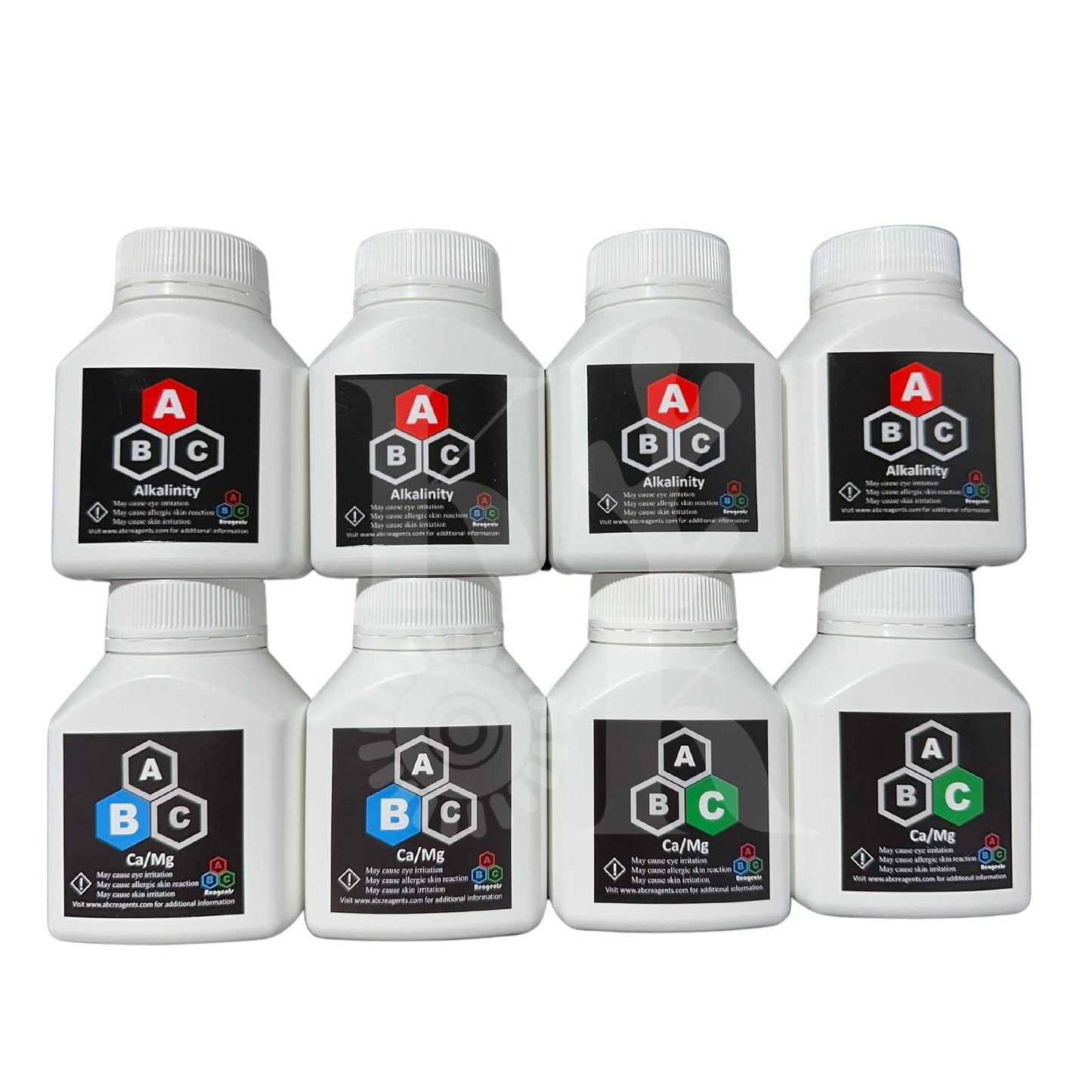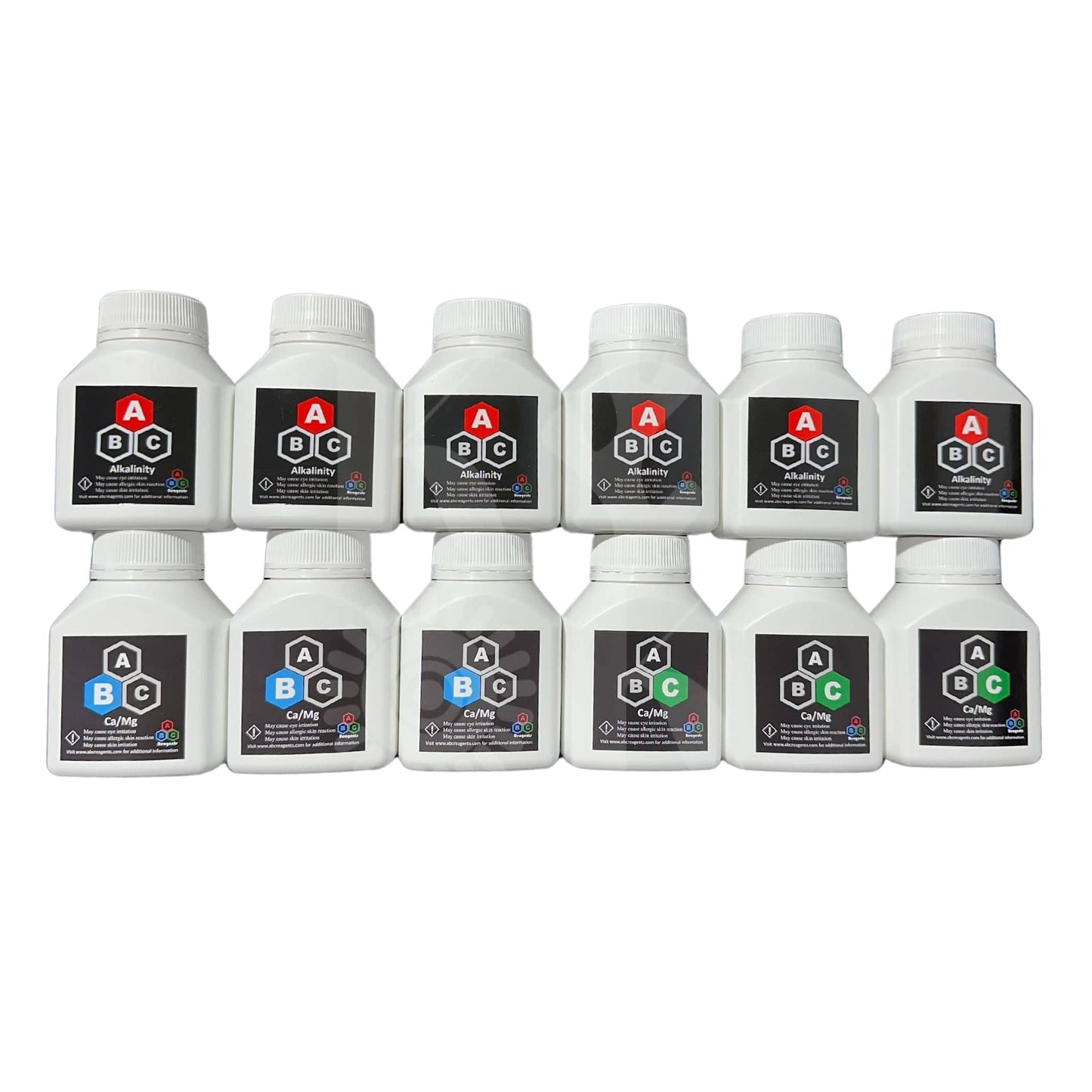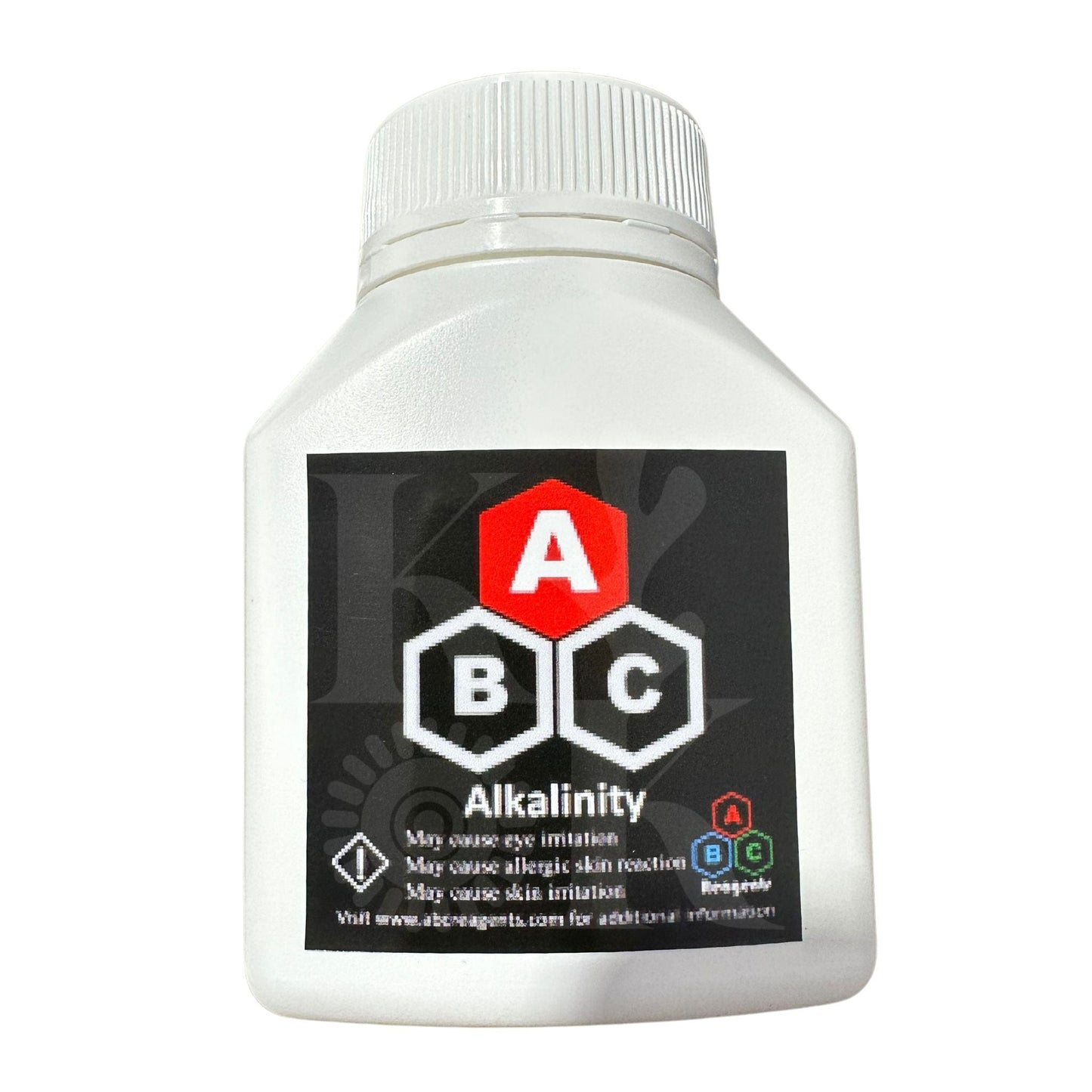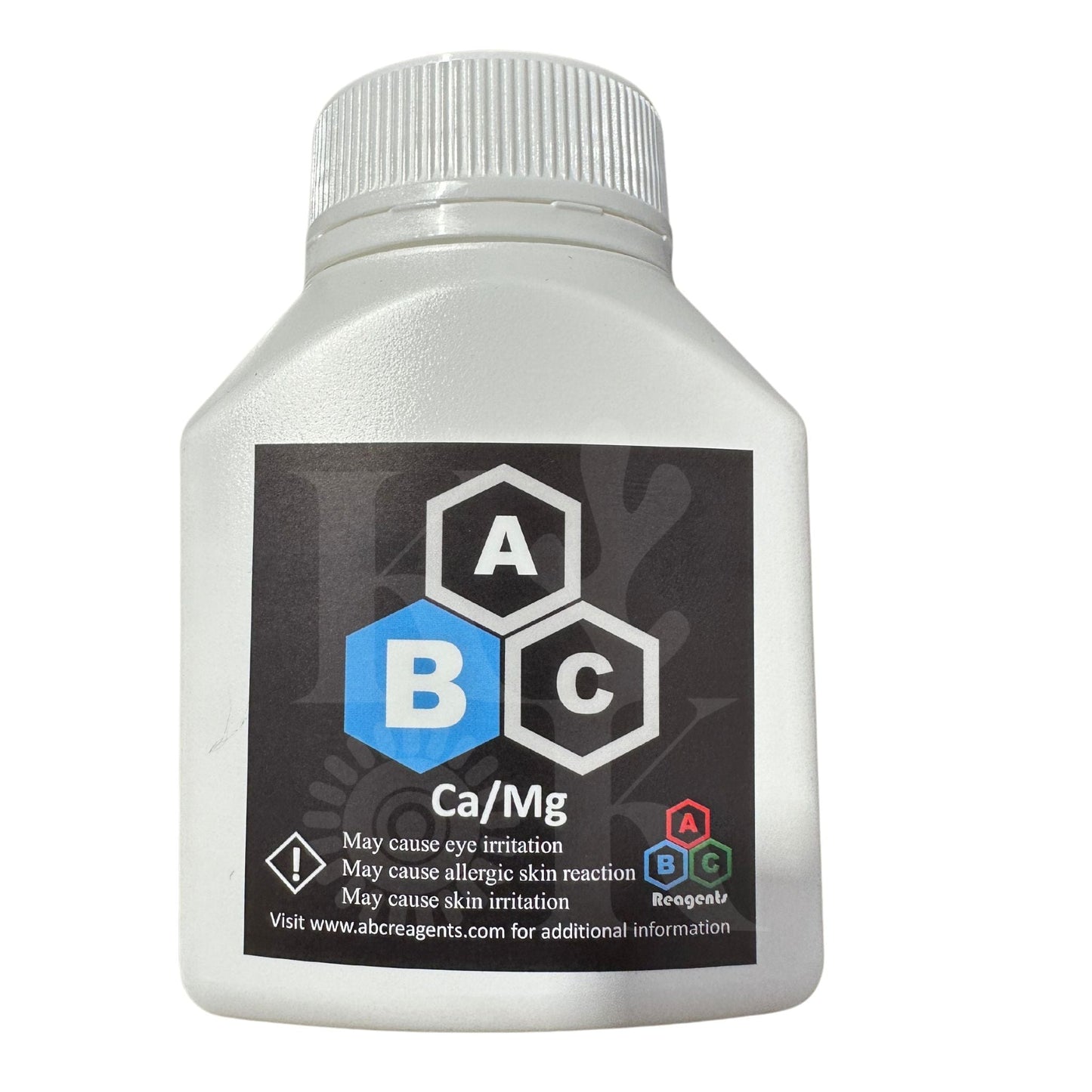ABC Reagent Kit
ABC Reagent Kit
Couldn't load pickup availability
Low stock: 1 left
ABC Reagents is a direct replacement kit for trident that gives you great results and saves you money.
Calibration Fluid is Not Included in ABC Reagent SOLD SEPARATELY
Supplied in the correct size bottles to suit Trident
*Supply based on common testing frequencies of automated systems
2 month supply contains:
2 X 250ml bottles
250ml reagent B bottle
250ml reagent C bottle
4 month supply contains:
4 X 250ml bottles
2 X 250ml reagent B bottle
2 X 250ml reagent C bottle
6 month supply contains:
6 X 250ml bottles
3 X 250ml reagent B bottle
3 X 250ml reagent C bottle
This is the same quality as you would get with Neptune
Recent data suggests that using calibration solution on an automatic water testing system can add unnecessary inaccuracies to test results. Moreover, if the tank values do not match the calibration solution values, the automated testing system will perform additional and wasteful tests following the calibration procedure.
Alternative Option
Leaving the sample lines in the tank is a simpler alternative than transferring them to a calibration bottle. This is because the latter may lead to compromised flow, air gaps, and incomplete priming of the lines. These issues can cause problems during the calibration process.
Most customers prefer to manually test their tank water with test kits they trust for accuracy. Consequently, they know the values in their tanks or have an idea of acceptable accuracy. Using tank water as a "calibration solution" is much more accurate than relying on any calibration solution. This is because the alkalinity of tank water is more stable than a small volume of calibration solution. Therefore, once tank water is tested, there is minimal chance of it changing before and during the calibration process, except for active dosing.
Calibration solution is a stabilised saltwater that undergoes testing through various methods to determine its values. However, the alkalinity of the solution is not fixed and undergoes equilibria phenomena upon opening. This results in a value change due to exposure to different atmospheric conditions between bottling and re-opening in a new environment. Manufacturers have taken various measures to counteract this phenomenon, but it cannot be completely eliminated.
